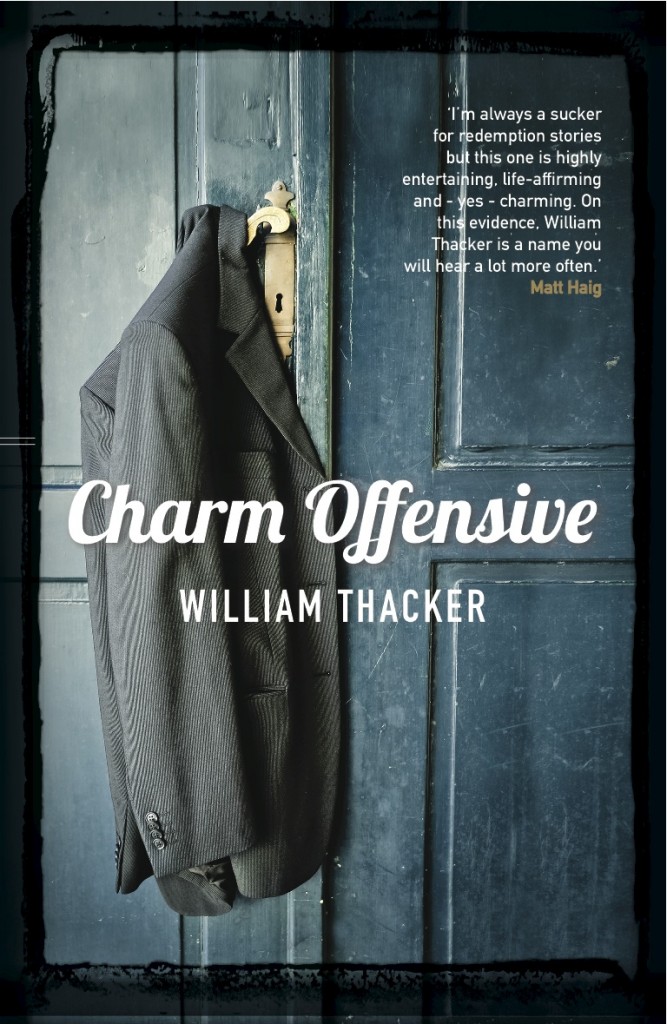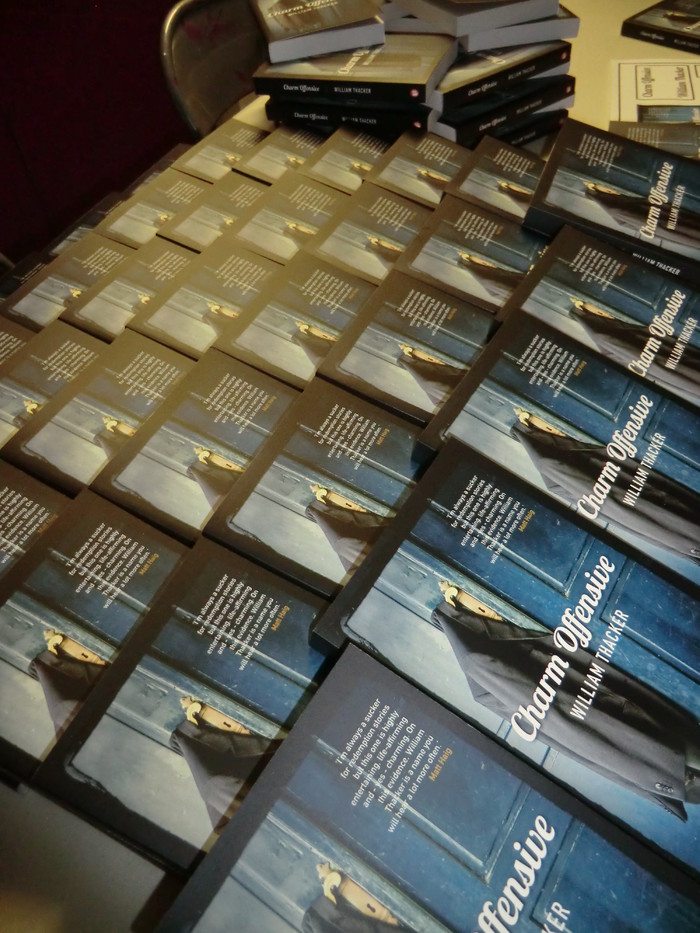Meet Joe Street ‘…former education secretary. The fallen minister. The lost politician’.
Thacker’s narrative, Charm Offensive, charts the somewhat bleak and miserable life of protagonist Joe Street as he attempts salvation from a political (and personal) crisis. Following a scandal leaked to the press Joe loses his job and is abandoned by his wife Muriel, being already estranged to their daughter. Teamed up with the balding, miscreant PR guru Barry, Joe attempts to claw back his credibility and re-build a life with Muriel and his daughter Rosalind.
It isn’t long into the novel before Joe is crawling up the stairs of his daughter’s house to beg for a bed. Pitiful anecdotes dominate these initial scenes as Joe struggles to rekindle familial affection with Rosalind. With the house lacking anything remotely homely, the pair then hastily devise a project to fill it with Hampstead’s homeless. The plot then begins to develop, but it’s worth noting that Charm Offensive is more an exploration of character than it is a novel of intricate plot twists.
 Many of the novel’s most interesting scenes take place in this house-cum-social enterprise that is eventually known as Bevan Breakfast (yes, this is a nod to Labour’s Left. Of which precious little is actually left). Rosalind as ‘artist-in-residence’ and George (a middle-class guy with one failed social enterprise already under his belt) transform the house into a homeless shelter with a good dollop of art thrown in. Because, as Thacker dryly notes, that’s exactly what homeless people need. Art.
Many of the novel’s most interesting scenes take place in this house-cum-social enterprise that is eventually known as Bevan Breakfast (yes, this is a nod to Labour’s Left. Of which precious little is actually left). Rosalind as ‘artist-in-residence’ and George (a middle-class guy with one failed social enterprise already under his belt) transform the house into a homeless shelter with a good dollop of art thrown in. Because, as Thacker dryly notes, that’s exactly what homeless people need. Art.
Thacker’s wry authorial voice speaks the loudest of them all. Talking of George’s prior failed social venture funded by his Daddy, Thacker, through Joe, humorously notes: ‘The advantage of pursuing a middle-class vanity project is that you can afford to fuck it up’. The sheer lack of self-awareness on Joe’s part in this comment made me smile. I immediately felt kinship with the author in his refreshingly honest portrayal of the ‘charitable’ endeavours of George and Rosalind. Let’s be honest, there are some people for whom charity is a thinly-veiled effort in either: scoring a free holiday, losing weight, or scrambling up the career ladder. And, for the record, I said SOME people. Top marks from me for teasing this out.
Perhaps, rather strangely, there are a few plot elements of Charm Offensive that reminded me of Austen’s Mansfield Park. It won’t give much away if I tell you that there’s a play within a novel, acted out by amateurs – much like Lover’s Vows in MP. The performed scenes in Bevan Breakfast also make Joe (like Fanny) uncomfortable illustrating scenes that cruelly resonate with him. Thacker adds to this by conveying an uncomfortable sense of claustrophobia confining Joe to his bedroom during most of this planning and forcing him to play a redundant role in the house whilst others (mainly strangers) feel freer to be there. This episode is skilfully conceived.
 Whilst the satellite characters are drawn with sympathy and depth, I did at times feel that Thacker could’ve done more with Joe himself. There are points where Joe’s impotence spreads beyond the affair he never actually had (not a spoiler – I promise!) and often failed to convince me that he had any real drive to achieve anything. He has too passive a personality which made it impossible for me to truly root for him.
Whilst the satellite characters are drawn with sympathy and depth, I did at times feel that Thacker could’ve done more with Joe himself. There are points where Joe’s impotence spreads beyond the affair he never actually had (not a spoiler – I promise!) and often failed to convince me that he had any real drive to achieve anything. He has too passive a personality which made it impossible for me to truly root for him.
This novel also spans a relatively short period which didn’t allow enough time to realistically believe the kinds of emotional transformations the characters endure. That said, Thacker’s critical perception and treatment of George, Rosalind, Barry and Muriel made up for this slight narrative short-fall.
In sum, the subject matter of this novel will never fail to appeal; everyone loves seeing the demise of a disgraced politician! The spiteful child in me secretly hopes our very own education secretary Michael Gove will ultimately suffer this too. Thacker has the beginnings of a brilliant writer and I look forward to his next (hopefully longer) offering.
 Pop Verse Pop Culture Universe
Pop Verse Pop Culture Universe






